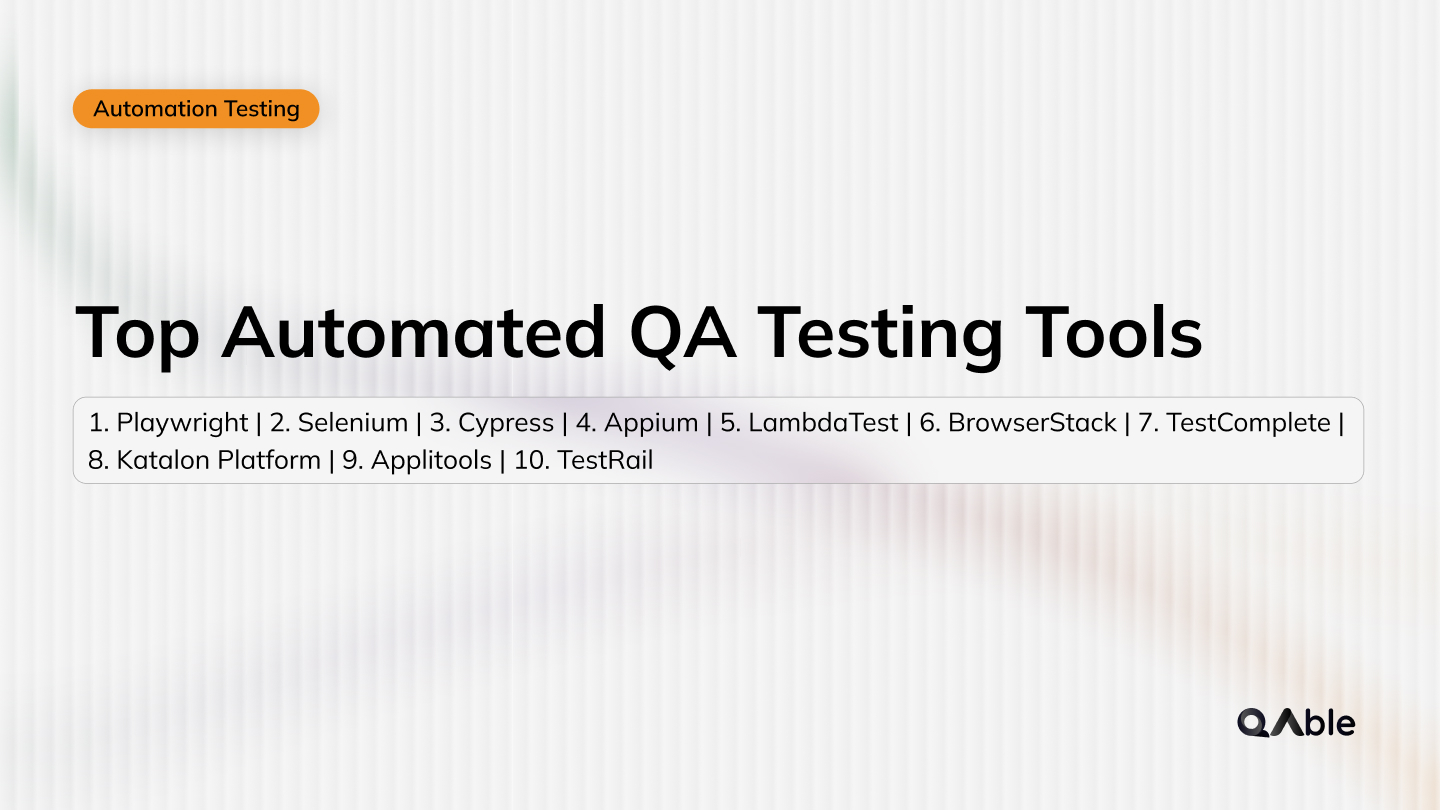Table of content
SHARE THIS ARTICLE
Is this blog hitting the mark?
Contact Us
Table of Content
- Role of Cyber Security in the Gaming Industry
- Common Cybersecurity Threats in Video Games
- Impact of Cybersecurity Breaches on the Gaming Industry
- Ensuring Robust Data Security in the Gaming Industry
- Role of Game Testing Companies in Enhancing Cybersecurity
- FAQs
Computer gaming has evolved into one of the largest industries of the modern world, especially with the rise of the internet, and has become extremely vulnerable to cyber threats.
With millions of players and vast amounts of data processed daily, the protection of information in the gaming industry has never been as important as it is today. Players’ data, financial data, and other assets are major concerns when it comes to building a good reputation for the games and the longevity of the gaming-related businesses.
In this post, we will discuss why it is crucial to focus on cybersecurity in video games, the main threats that can be faced, and how collaborating with a trustworthy game testing company in India and using QA outsourcing services in India can enhance your game’s protection.
Role of Cyber Security in the Gaming Industry
The cyber security gaming industry landscape has become increasingly complex due to several factors:
Massive User Base: We must remember that millions of users play popular games every day, and cyber criminals always aim to take advantage of game enthusiasts to get their hands on their personal and financial information.
In-Game Transactions: More game features such as in-game purchases and virtual currency have made it worse resulting in more threats, and therefore the need to enhance security.
Cloud Gaming and Online Platforms: Due to the increasing adoption of cloud services and online platforms to host games, the attack surface has expanded.
Esports and Competitive Gaming: The transformation of gaming into esports created a new layer of competition, where attackers aim at gaining advantages and monetization.
Common Cybersecurity Threats in Video Games
Understanding the prevalent threats is the first step toward strengthening data security in gaming industry. Some of the most common cybersecurity challenges include:
1. Data Breaches
Personal Information Theft: Hackers often target gaming platforms to access users' personal information, including names, addresses, and payment details.
Intellectual Property Theft: Game developers' proprietary code and assets are valuable targets, leading to potential financial losses and reputational damage.
2. Distributed Denial of Service (DDoS) Attacks
Service Disruption: DDoS attacks overwhelm game servers with traffic, causing downtime and frustrating users.
Competitive Sabotage: In esports, DDoS attacks can be used to disrupt competitions, affecting fairness and integrity.
3. Malware and Ransomware
Malicious Software: Cybercriminals distribute malware through game downloads or updates to gain unauthorized access to systems.
Ransom Demands: Ransomware encrypts critical data, with attackers demanding payment to restore access.
4. Account Takeovers
Credential Stuffing: Attackers use stolen login information from other breaches to access gamer accounts, exploiting weak or reused passwords.
Phishing Attacks: Deceptive messages trick users into revealing sensitive information or downloading harmful software.
5. Cheating and Exploits
Game Integrity Issues: Hackers create cheats or exploit vulnerabilities to gain unfair advantages, ruining the experience for legitimate players.
Monetization Exploits: Exploiting in-game economies can lead to financial imbalances and affect the game's sustainability.
Also read: 10 Types of Cyber Security Testing Techniques
Impact of Cybersecurity Breaches on the Gaming Industry
The consequences of inadequate cybersecurity in video games are far-reaching:
Loss of Player Trust: Security breaches lead to loss of user confidence and hence churnage of users as well as publicity negatives.
Financial Losses: Businesses can suffer direct monetary losses resulting from theft as well as intangible losses when it comes to compensation costs and legal action.
Regulatory Penalties: If data protection regulations are not followed there could be severe penalties as well as legal sanctions imposed.
Damage to Brand Reputation: Recurrent security problems may damage the company’s reputation thus influencing future contracts and transactions.
Operational Disruptions: They can lead to extended periods of working disruption, which means a direct strike at revenues and users.
Ensuring Robust Data Security in the Gaming Industry
To avoid these threats, the managers of gaming companies need to use defensive measures that involve technology, processes, and people. Key measures include:
1. Implementing Advanced Security Technologies
Encryption: Encrypt data to ensure data is secure when stored and when it is in transit using a secure algorithm.
Multi-Factor Authentication (MFA): This ensures better account security measures through the implementation of multi-factor verification.
Regular Security Updates: Always update the systems and the software to address security flaws on time.
Intrusion Detection and Prevention Systems (IDPS): Scanning network traffic to detect any malicious activities and eliminate them.
2. Conducting Thorough Security Testing
Vulnerability Assessments: Perform systematic vulnerability assessments in systems to address security issues.
Penetration Testing: Conduct probes on the network to test the readiness of current security frameworks.
Secure Code Reviews: While conducting security testing, ensure that there are no openings in the code of the game that any attacker can take advantage of.
3. Educating Users and Employees
Security Awareness Training: Brief the staff and users about threats and measures that can be taken to avoid social engineering attacks.
Clear Security Policies: Ensure strict implementation of effective security policies and measures within the organisation.
4. Outsourcing solution with Expert QA and Testing Services
Outsourcing game testing services from specialised companies in India or opting for quality assurance outsourcing services in India can go a long way toward improving the security of your game.
The Role of Game Testing Companies in Enhancing Cybersecurity
India has emerged as a global hub for IT services, offering world-class expertise in software testing and quality assurance. Here's how partnering with a game-testing company in India can benefit your gaming business:
1. Access to Skilled Professionals
Expertise in Security Testing: Indian QA firms employ seasoned professionals proficient in the latest security testing methodologies and tools.
Diverse Experience: These companies have experience working on a wide range of gaming platforms and genres, enabling them to identify and address unique security challenges effectively.
2. Comprehensive QA Outsourcing Services
End-to-End Testing Solutions: QA outsourcing services in India offer a full spectrum of testing services, including functionality, performance, compatibility, and security testing.
Cost-Effective Solutions: Outsourcing to India provides high-quality services at competitive rates, optimizing your budget without compromising on quality.
Scalable Resources: Indian QA firms can quickly scale their teams to match your project's needs, ensuring timely and efficient testing processes.
3. Use of Advanced Tools and Methodologies
Cutting-Edge Technologies: Indian testing companies leverage the latest tools and technologies to conduct thorough and efficient security assessments.
Agile and DevOps Practices: Integrating testing early and throughout the development cycle ensures continuous security validation and quicker response to emerging threats.
4. Ensuring Compliance and Standards
Adherence to Global Standards: Indian QA providers ensure that your game complies with international security standards and regulations, reducing legal risks and enhancing market readiness
Documentation and Reporting: Detailed test reports and documentation provide clear insights into your game's security status and guide necessary improvements.
Also Read: Outsource Software Testing & QA
Case Study: Successful Security Enhancement Through QA Outsourcing
Consider a leading gaming company that partnered with a game testing company in India to strengthen its security framework. Through comprehensive testing and proactive vulnerability assessments, the company was able to:
Identify and Fix Critical Vulnerabilities: Early detection of security flaws prevented potential breaches and protected user data.
Enhance User Trust and Engagement: Improved security measures led to increased user confidence and retention rates.
Achieve Compliance Effortlessly: Adherence to necessary security standards and compliance facilitated smooth launches across various global markets.
Reduce Development Costs and Time: Efficient testing processes streamlined development cycles and reduced the need for costly post-release patches.
Conclusion
Data security needs to be given high priority within the gaming industry since it is a critical aspect of the business. With threats becoming more numerous and complex, game firms must ensure that all possible safety measures are put into consideration to secure users as well as valuables. However, collaborating with professional game testing companies in India and utilizing the elaborate QA outsourcing services in India is an ideal solution to protect your game against cyber threats.
Thus, by using the active security approach and cooperating with qualified QA partners, you can guarantee a safe and engrossing game for your users, as well as credibility and customer trust in the gaming projects, which will result in the sustainable success of your business. For top-notch security testing services, don't hesitate to reach out to us. As the leading software testing company in India, we are here to meet your needs.
Discover More About QA Services
sales@qable.ioDelve deeper into the world of quality assurance (QA) services tailored to your industry needs. Have questions? We're here to listen and provide expert insights


Nishil Patel is the Co-founder of QAble, delivering advanced test automation solutions with a focus on quality and speed. He specializes in modern frameworks like Playwright, Selenium, and Appium, helping teams accelerate testing and ensure flawless application performance.
.svg)














.webp)
.webp)
.png)
.png)











.png)



.png)

.png)

.png)






.jpg)













.webp)

